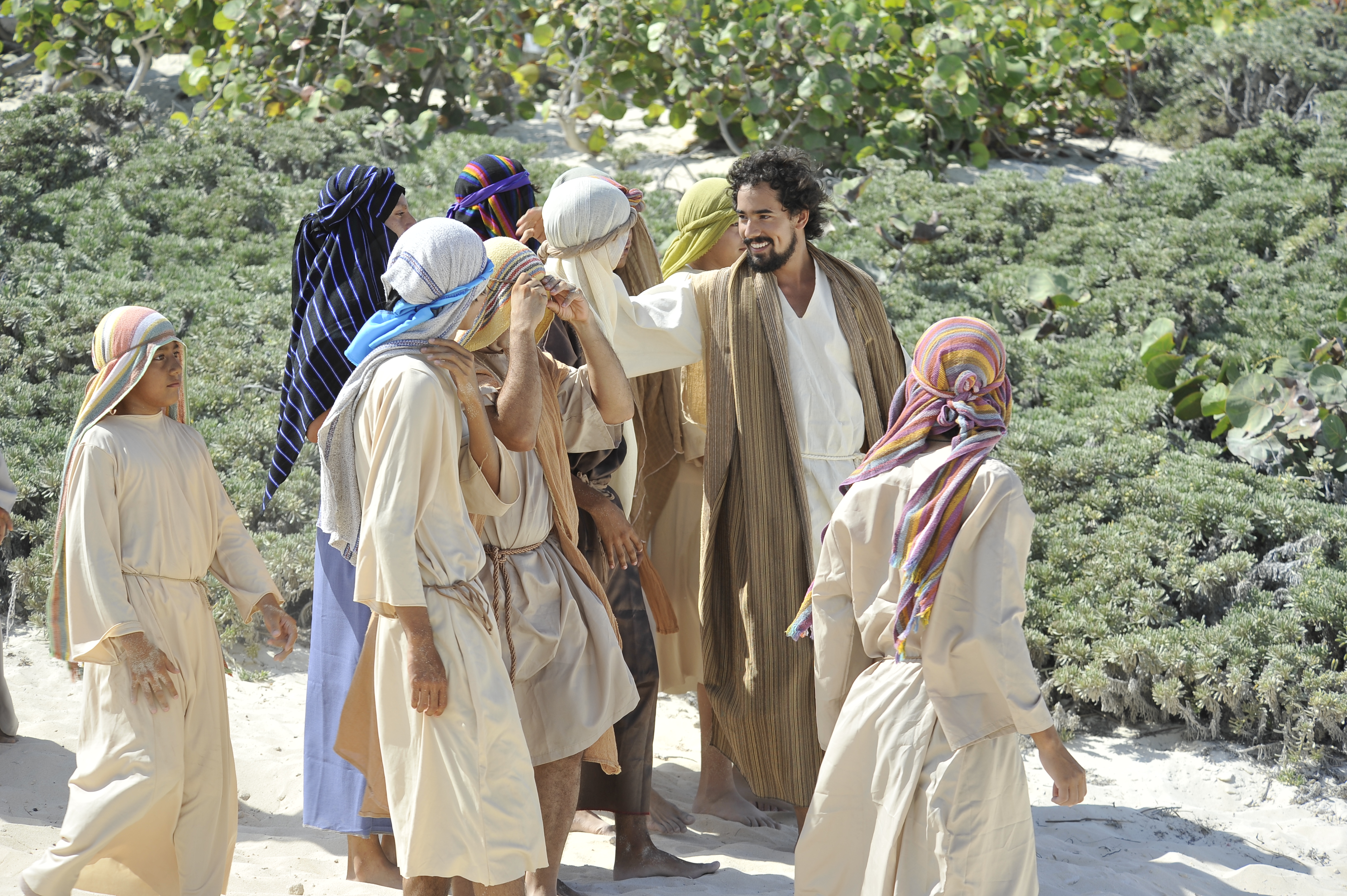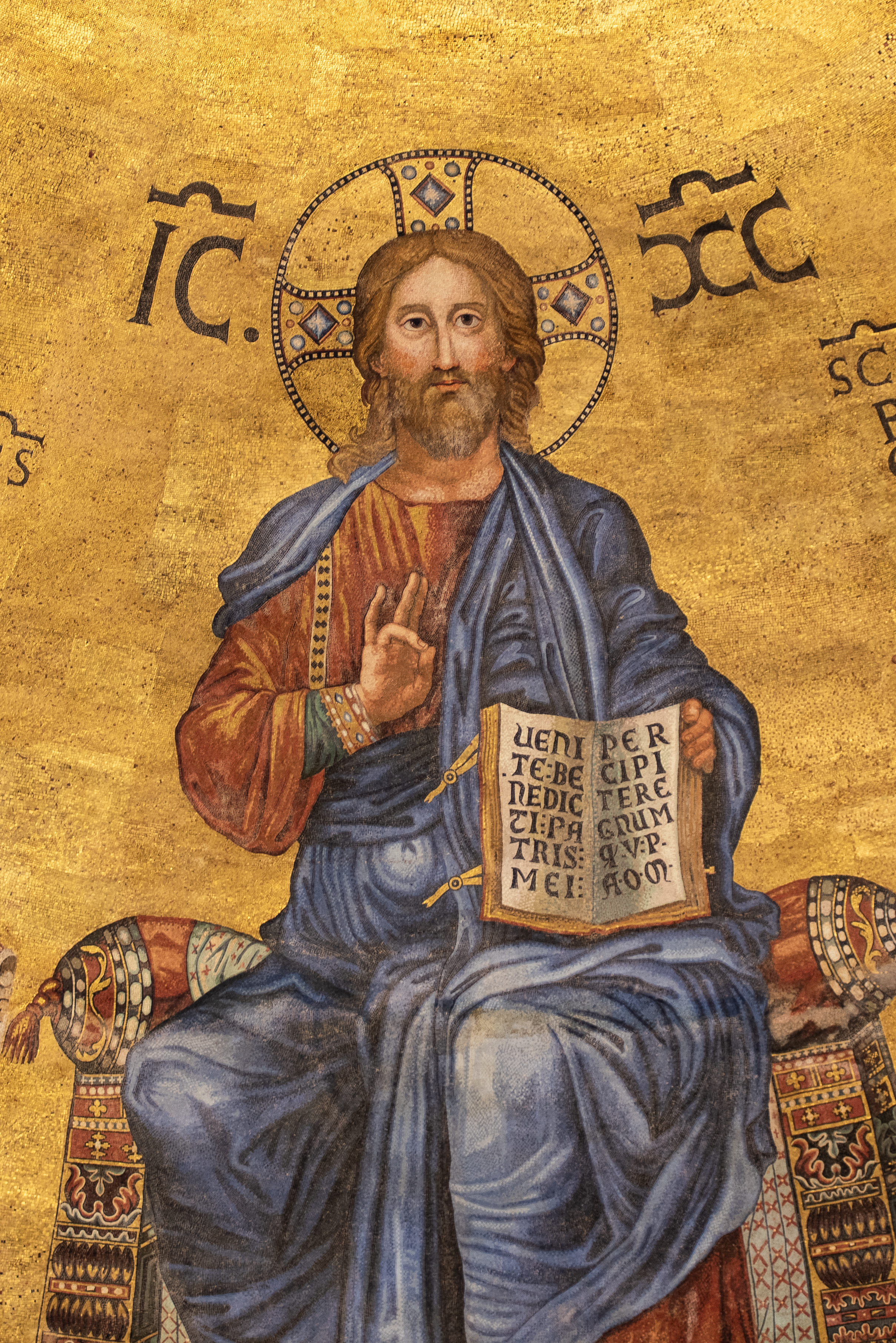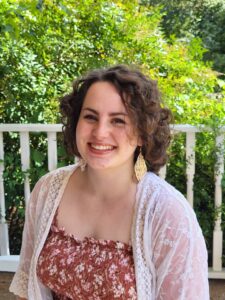Something very profound is going on in this brief passage about the call of the first apostles. Jesus calls, they follow. It’s a pretty simple cause and effect scenario. Yet, you and I both know that following Jesus is anything but simple these days…right? Or could it be that this passage is the perfect model for just how radical it is to follow Jesus?
Jesus offered the first apostles no explanations, He didn’t try to sway them. He boldly called out an invitation and issued a promise. He continues to stand by the shore near our boats and offer the same to us.
First, He invites us. It’s a call, a challenge, a summons to adventure. “Come on, let me show you where you could go.” However, Jesus always respects our free will. We freely choose to follow, or to remain behind. The choice is ours.
Then, he makes a promise, “I will make you fishers of men.” What does that mean exactly? Each baptized individual is called to be a witness of the faith. This mission looks different for each person. I am called to witness to the faith in this written format. I am also called to share the faith with my children. Others are called to be a witness in the workplace. Some of you might witness before large groups of people. Others will share the faith one person at a time, helping to share the light of Christ candle by candle.
We are invited, each in our own unique way, to participate in Jesus’ mission to build the Kingdom of Heaven. No matter who we are, Jesus invites us to get up and go on an adventure with Him.
I think the word “abandoned” is important here. Abandoned is a very active word, it paints a vivid picture of someone throwing an object aside, forgetting it’s very existence. The first apostles abandoned their nets when they answered Jesus’ summons. They didn’t hold onto their tools, just in case. They didn’t ask to stow their boats first so they wouldn’t get stolen.
The apostles show us how to let go of everything to follow Jesus. This isn’t an easy task, and fortunately we have a God who is not outdone in generosity. There isn’t a time limit on Jesus’ call to discipleship. He calls us every day, every moment. Over and over again, we have the opportunity to more freely say “Yes!” and abandon our own nets to follow Jesus.
Algo muy profundo está sucediendo en este breve pasaje sobre el llamado de los primeros apóstoles. Jesús llama, ellos lo siguen. Es un escenario de causa y efecto bastante simple. Sin embargo, tú y yo sabemos que seguir a Jesús no es nada sencillo hoy en día… ¿verdad? ¿O podría ser que este pasaje sea el modelo perfecto de cuán radical es seguir a Jesús?
Jesús no ofreció explicaciones a los primeros apóstoles, no trató de influirlos. Audazmente hizo una invitación y hizo una promesa. Él continúa estando en la orilla cerca de nuestros barcos y ofreciéndonos lo mismo.
Primero, Él nos invita. Es un llamado, un desafío, una invitación a la aventura. “Vamos, déjame mostrarte que tan lejos dónde podrías llegar”. Sin embargo, Jesús siempre respeta nuestro libre albedrío. Elegimos libremente seguirlos o quedarnos atrás. La elección es nuestra.
Luego, hace una promesa: “haré de ustedes pescadores de hombres”. ¿Qué significa eso exactamente? Cada bautizado está llamado a ser testigo de la fe. Esta misión se ve diferente para cada persona. Estoy llamado a dar testimonio de la fe por escrito con estas reflexiones. También estoy llamado a compartir la fe con mis hijos. Otros son llamados a ser testigos en el lugar de trabajo. Algunos de ustedes podrían testificar ante grandes grupos de personas. Otros compartirán la fe una persona a la vez, ayudando a compartir la luz de Cristo uno por uno.
Estamos invitados, cada uno a nuestra manera, a participar en la misión de Jesús de construir el Reino de los Cielos. No importa quiénes seamos, Jesús nos invita a levantarnos y emprender una aventura con Él.
Creo que la palabra “dejaron” es importante aquí. Dejar es una palabra muy activa, pinta una imagen vívida de alguien que suelta un objeto, olvidando su existencia misma. Los primeros apóstoles dejaron sus redes cuando respondieron al llamado de Jesús. No guardaron sus herramientas, por si acaso. No pidieron guardar sus botes primero para que no se los robaran.
Los apóstoles nos muestran cómo dejarlo todo para seguir a Jesús. Esta no es una tarea fácil y afortunadamente tenemos un Dios que no se queda atrás en generosidad. No hay un límite de tiempo para el llamado de Jesús al discipulado. Él nos llama todos los días, en cada momento. Una y otra vez, tenemos la oportunidad de decir más libremente “¡Sí!” y dejar nuestras propias redes para seguir a Jesús.
 Kate Taliaferro is an Air Force wife and mother. She is blessed to be able to homeschool, bake bread and fold endless piles of laundry. When not planning a school day, writing a blog post or cooking pasta, Kate can be found curled up with a book or working with some kind of fiber craft. Kate blogs at DailyGraces.net.
Kate Taliaferro is an Air Force wife and mother. She is blessed to be able to homeschool, bake bread and fold endless piles of laundry. When not planning a school day, writing a blog post or cooking pasta, Kate can be found curled up with a book or working with some kind of fiber craft. Kate blogs at DailyGraces.net.
Feature Image Credit: Pixabay, pexels.com/photo/boat-canoe-evening-island-219693/


 Susan Ciancio has a BA in psychology and a BA in sociology from the University of Notre Dame, with an MA in liberal studies from Indiana University. For the past 19 years, she has worked as a professional editor and writer, editing both fiction and nonfiction books, magazine articles, blogs, educational lessons, professional materials and website content. Thirteen of those years have been in the pro-life sector. Currently Susan freelances and writes weekly for HLI, edits for American Life League, and is the executive editor of Celebrate Life Magazine. She also serves as executive editor for the Culture of Life Studies Program—an educational nonprofit program for K-12 students. You can reach her at
Susan Ciancio has a BA in psychology and a BA in sociology from the University of Notre Dame, with an MA in liberal studies from Indiana University. For the past 19 years, she has worked as a professional editor and writer, editing both fiction and nonfiction books, magazine articles, blogs, educational lessons, professional materials and website content. Thirteen of those years have been in the pro-life sector. Currently Susan freelances and writes weekly for HLI, edits for American Life League, and is the executive editor of Celebrate Life Magazine. She also serves as executive editor for the Culture of Life Studies Program—an educational nonprofit program for K-12 students. You can reach her at 
 A lover of Jesus Christ, a wife, and a mother of five, Christine is the author of Everyday Heroism: 28 Daily Reflections on the Little Way of Motherhood. She is a graduate of Franciscan University, an instructor for the Institute for Excellence in Writing, and an experienced catechist. Thrilled to have recently become grandparents, she and her husband currently live in Upstate, NY. Visit her author webpage at
A lover of Jesus Christ, a wife, and a mother of five, Christine is the author of Everyday Heroism: 28 Daily Reflections on the Little Way of Motherhood. She is a graduate of Franciscan University, an instructor for the Institute for Excellence in Writing, and an experienced catechist. Thrilled to have recently become grandparents, she and her husband currently live in Upstate, NY. Visit her author webpage at 
 Merridith Frediani loves words and is delighted by good sentences. She also loves Lake Michigan, dahlias, the first sip of hot coffee in the morning, millennials, and playing Sheepshead with her husband and three kids. She writes for Catholic Mom, Diocesan.com, and her local Catholic Herald. Her first book Draw Close to Jesus: A Woman’s Guide to Adoration is available at Our Sunday Visitor and Amazon. You can learn more at
Merridith Frediani loves words and is delighted by good sentences. She also loves Lake Michigan, dahlias, the first sip of hot coffee in the morning, millennials, and playing Sheepshead with her husband and three kids. She writes for Catholic Mom, Diocesan.com, and her local Catholic Herald. Her first book Draw Close to Jesus: A Woman’s Guide to Adoration is available at Our Sunday Visitor and Amazon. You can learn more at 
 Mike Karpus is a regular guy. He grew up in Michigan’s Upper Peninsula, graduated from Michigan State University and works as an editor. He is married to a Catholic school principal, raised two daughters who became Catholic school teachers at points in their careers, and now relishes his two grandchildren, including the older one who is fascinated with learning about his faith. He also has served on a Catholic school board, a pastoral council and a parish stewardship committee. He currently is a lector at Mass, a Knight of Columbus, Adult Faith Formation Committee member and a board member of the local Habitat for Humanity organization. But mostly he’s a regular guy.
Mike Karpus is a regular guy. He grew up in Michigan’s Upper Peninsula, graduated from Michigan State University and works as an editor. He is married to a Catholic school principal, raised two daughters who became Catholic school teachers at points in their careers, and now relishes his two grandchildren, including the older one who is fascinated with learning about his faith. He also has served on a Catholic school board, a pastoral council and a parish stewardship committee. He currently is a lector at Mass, a Knight of Columbus, Adult Faith Formation Committee member and a board member of the local Habitat for Humanity organization. But mostly he’s a regular guy.


 Kathryn Mulderink, MA, is married to Robert, Station Manager for Holy Family Radio. Together they have seven children (including Father Rob), and seven grandchildren. She is President of the local community of Secular Discalced Carmelites and has published five books and many articles. Over the last 30 years, she has worked as a teacher, headmistress, catechist, Pastoral Associate, and DRE, and as a writer and voice talent for Catholic Radio. Currently, she serves the Church by writing and speaking, and by collaborating with various parishes and to lead others to encounter Christ and engage their faith. Her website is
Kathryn Mulderink, MA, is married to Robert, Station Manager for Holy Family Radio. Together they have seven children (including Father Rob), and seven grandchildren. She is President of the local community of Secular Discalced Carmelites and has published five books and many articles. Over the last 30 years, she has worked as a teacher, headmistress, catechist, Pastoral Associate, and DRE, and as a writer and voice talent for Catholic Radio. Currently, she serves the Church by writing and speaking, and by collaborating with various parishes and to lead others to encounter Christ and engage their faith. Her website is 
 Dr. Alexis Dallara-Marsh is a board-certified neurologist who practices in Bergen County, NJ. She is a wife to her best friend, Akeem, and a mother of two little ones on Earth and two others in heaven above.
Dr. Alexis Dallara-Marsh is a board-certified neurologist who practices in Bergen County, NJ. She is a wife to her best friend, Akeem, and a mother of two little ones on Earth and two others in heaven above.
 Hailing from Nashville, Catherine is a graduate of Christendom College with a lifelong passion for words. Her love of writing and her Catholic Faith continue to shape her as a freelance editor, copywriter, and (aspiring) novelist, where she pursues her passions for the love and greater glory of God.
Hailing from Nashville, Catherine is a graduate of Christendom College with a lifelong passion for words. Her love of writing and her Catholic Faith continue to shape her as a freelance editor, copywriter, and (aspiring) novelist, where she pursues her passions for the love and greater glory of God.


